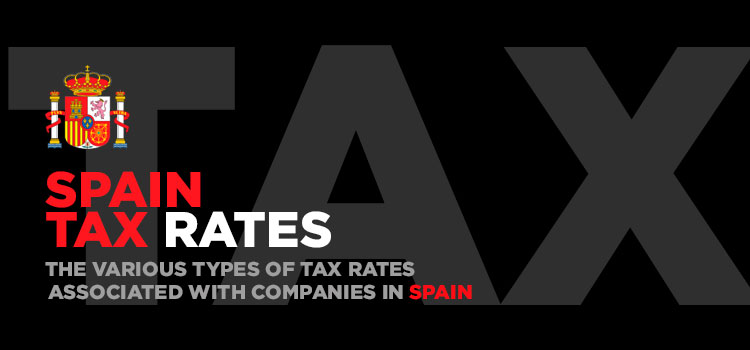Before moving into any business, you should be aware of the tax rates because it impacts the profit and net return of the company.
Company Tax Rates:
1) Significant Types of Limited Firms in Spain
For the Public Limited Firms
Minimum stock capital paid is 25%
Minimum Authorised stock capital is 60,000 Euros
For the Private Limited Firms
Minimum Stock capital is 3,000 Euros
2) Legal Obligations
All firms must submit yearly accounts to its stockholders for approval. It is mandatory to approve it within six months from the end of the accounting period.
The audit limit for this is around six million Euros of the aggregate net income. The yearly accounts of the firms have to be submitted to the Mercantile Registry.
3) Tax Rates
The usual tax rates for established companies is 25%.
The tax rate for newly-formed firms is lower than the usual companies. It applies for only the first two years during which the firm obtains a taxable profit. The rate in this particular case is 15%.
4) Payment of Company Tax
As soon as the accounting period ends, a firm needs to file a company tax return within six months and twenty-five days. The payment instalments of company tax are in April, October and December.
As an essential rule, each instalment is around 18% of the last year’s company tax liability. Analysts use a separate process for the large firms whose net turnover in the previous year surpasses a specific limit.
5) Calculation of Payable Income
The initial point is the net aggregate net profit per accounts, which is estimated in accordance with the general accounting plan. The depreciation should be within the directed limits. A goodwill tax-exempt is allowable.
For tax purposes, movements in some specific provisions are allowable. It includes legal expenses, doubtful debts, and devaluation of securities, unsold publications, extraordinary repairs and stock obsolescence.
There is no differentiation between short term gains and long term gains. The losses in tax can be shifted forward for up to ten years.
6) Disallowable Items
- Fines and penalties
- Corporation tax payments
- Donations and gifts other than to particularly approved organisations
- Expenditure on enhancement and improvement of capital assets
- Reduction over maximum directed rates (unless it can be confirmed that it was the real depreciation
7) Capital Gains
The capital gains incurred by the company are payable as a part of profits.
8) Group Relief
A consolidated or integrated tax return may be filed on a firm in case an election is conducted before starting of the tax year. In this only resident firms with an Ultimate Holding Firm are included.
This process of election needs to be restored every three years. There has to be around 90% ownership for both the prior and current tax year.
9) Rollover Relief
It is provided for reinvestment in the same type of security, between three years after or one year before the disposal. The tax is paid fairly and equally over either the actual depreciation period or the seven following years.
It is essential to keep the new security for seven years or for its useful course (in case its life is shorter)
The Bottom Line
One should be aware of the tax rates before moving into any business because it impacts the net return and profit of the company. The tax rates of countries vary and decided by its financial tax structure. This article deals about the tax rate in Spain but if you are interested in other countries then do read our blogs at fxreviews.best.

